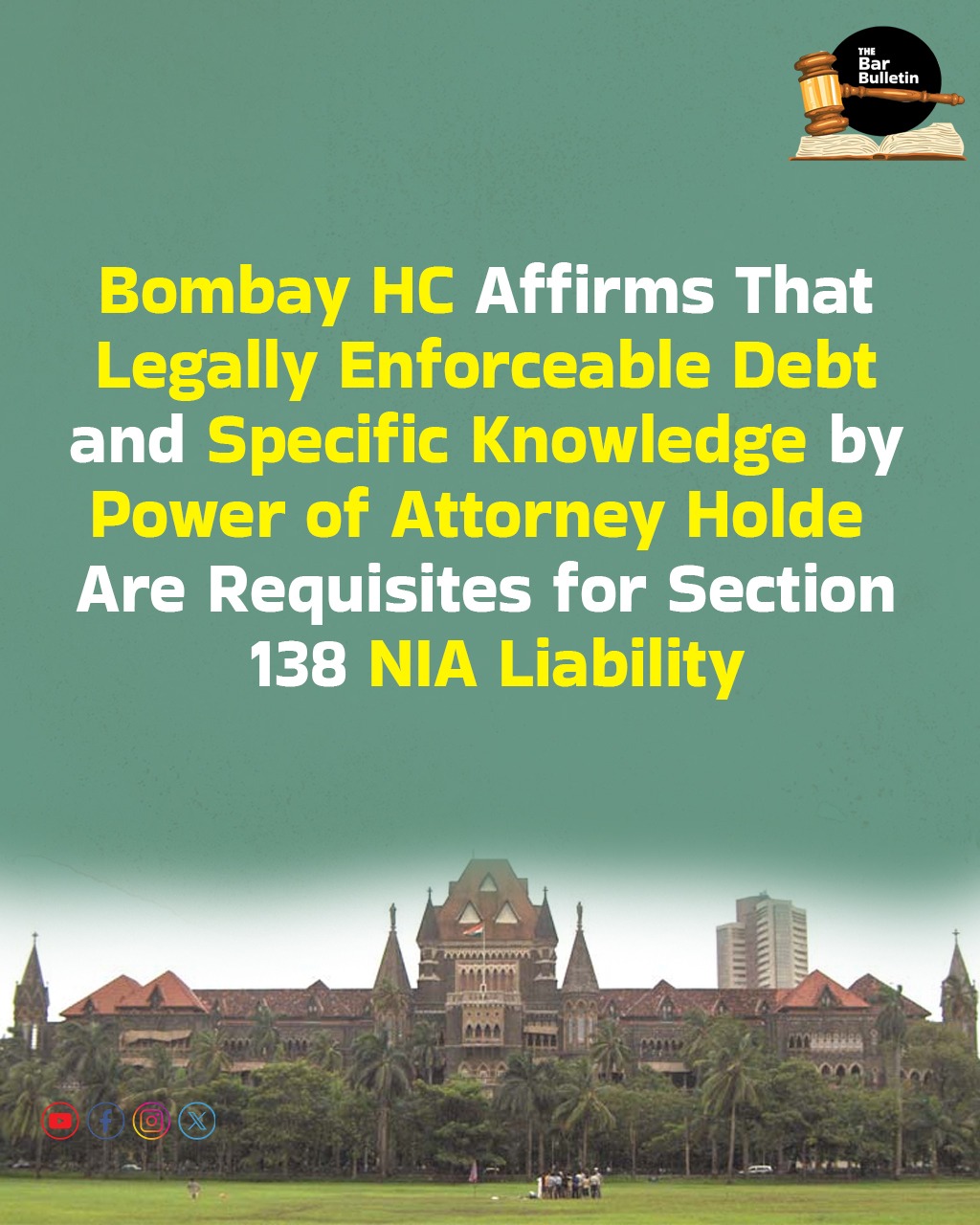The Bombay High Court (Nagpur Bench) dismissed the revision application filed by the Power of Attorney holder, thereby affirming the acquittal order passed by the Additional Sessions Judge, Nagpur. The Court found that the essential elements of Section 138 of the Negotiable Instruments Act (NIA) were not fulfilled, as there was neither explicit knowledge of the transaction by the Power of Attorney holder nor any proof of a legally enforceable debt.
The revision application was filed by Kisan R. Gate as the Power of Attorney holder for Mrs. Vaishali Sanjay Jaiswal. He challenged the appellate acquittal, arguing that the cheque in question was issued towards the discharge of a legal and enforceable debt connected with a failed property sale and that its dishonour amounted to an offence under Section 138 of the NIA.
Mrs. Vaishali Sanjay Jaiswal had agreed to purchase a plot in Nagpur and paid Rs. 20 lakhs through the accused, who acted as a broker. The agreement was cancelled, and the vendors refunded Rs. 5,50,000 via cheque, which was issued to Kisan R. Gate as the Power of Attorney holder. The cheque was dishonoured for insufficient funds, and after non-payment following a statutory notice, a criminal complaint was filed against the accused under Section 138 NIA.
Initially, the Judicial Magistrate First Class had convicted the accused and awarded compensation. On appeal, the Additional Sessions Judge, Nagpur, set aside the conviction and acquitted the accused, holding that the appellant failed to prove a legally enforceable debt or the Power of Attorney holder’s knowledge regarding the transaction. This led to the present revision application before the High Court.
The applicant argued that the presumption under Section 138 was not rebutted by the accused. The accused maintained that there was no legal liability as the cheque was handed over on behalf of the vendors, not as a personal obligation. He also highlighted that the Power of Attorney holder lacked direct knowledge of the facts. The Court found that at the time of issuing the statutory notice, no formal Power of Attorney existed and the evidence failed to show that the Power of Attorney holder had witnessed the transaction or had specific knowledge about it.
The High Court Bench comprising Justice Urmila Joshi-Phalke referred to Supreme Court precedents, specifically M/s MMTC Ltd. v. Medchl Chemicals & Pharma P. Ltd.[1] and Janki Vashdeo Bhojwani v. Indusind Bank[2], which require a Power of Attorney holder filing a complaint to have witnessed the transaction or possess explicit knowledge thereof.
The Court observed that neither the complaint nor the evidence established this knowledge. Furthermore, there was no documentation proving a legally enforceable debt existed between the parties. Section 138 of the NIA requires that the debt must be legally enforceable and subsisting on the date of the cheque’s issuance, which was not proven by the complainant.
In result, the High Court sustained the appellate acquittal and dismissed the revision application. The Court held that, in the absence of a valid, enforceable liability and without the Power of Attorney holder’s direct knowledge or personal involvement in the transaction, a complaint under Section 138 of the NIA cannot succeed.
Cases relied on:
1. M/s. MMTC Ltd. and Anr. vs. M/s.Medchl Chemicals and Pharma P. Ltd. and Anr., (2002) 1 SCC 234
2. Janki Vashdeo Bhojwani and Anr. vs. Indusind Bank Ltd. and Ors., (2005)2 SCC 217
Appearances:
Mrs. Suhasini Deshpande, Counsel for the Applicant.
Shri A. R. Rishi, Counsel for the Non-applicant.
[1] (2002)1 SCC 234
[2] (2005)2 SCC 217

